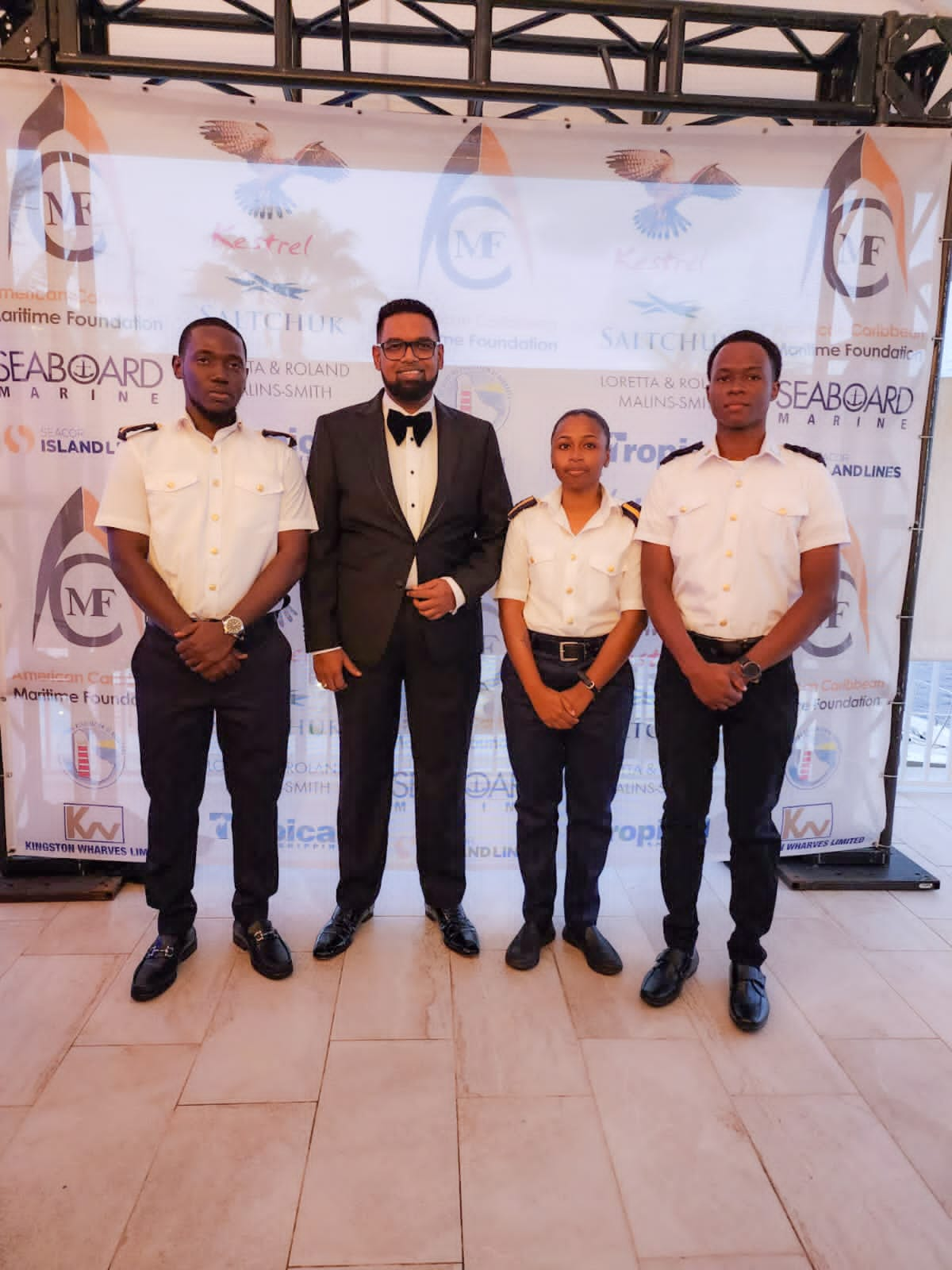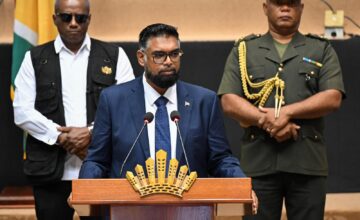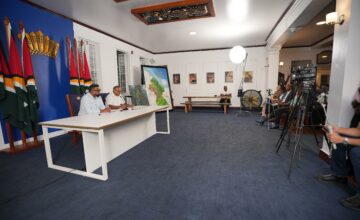
Florida, USA—(November 05, 2022) His Excellency Dr Irfaan Ali announced that his Government plans to create a National Marine Strategy to promote the sustainable use of Guyana’s marine space.
The Head of State made this announcement during his keynote address at the American Caribbean Maritime Foundation (ACMF) Fifth Annual Gala and Anchor Awards ceremony held on Friday evening at the Coral Ridge Yacht Club in Fort Lauderdale, Florida.
He said that “Guyana with the support of the Government of the UK under the Commonwealth Marine Economy Programme has implemented a plan for the sustainable use of the marine space. Under this plan, the Government will create and devise a National Marine Strategy that will be country-specific and in keeping with our Low Carbon Development Strategy.”
TRAINING DIVERSIFICATION
As Government prepares for these opportunities, the President noted that training will be diversified to other skill areas, including coastal engineering, naval architecture, marine service port engineering, port planning and development, marine pollution prevention, and fisheries management, among others.
He assured that the human resource capacity of the country will be diversified beyond the demands of the oil and gas sector and will be engineered to support the Caribbean Region in building its “first world, first-class human resource capacity and capability”.
The work of ACMF was lauded, and the foundation was applauded for its efforts in strengthening the region’s human resources capacity through the provisions of scholarships, grants and other forms of support for maritime training and education. This, the President said, will allow the region to develop a corps of maritime professionals and specialists that will ensure the proper regulation and management of the Caribbean’s maritime resources.
He pointed to the importance of the Caribbean’s marine space, which forms an important link between South America and markets in North America.
Ports in Jamaica and the Bahamas, he continued, serve as important transhipment points for the movement of goods through the region to external markets.
“In the case of Guyana, we will eventually have our own deep water harbour and become a major shipping gateway.”
Given this, President Ali stressed that the sector must be modernised to allow the region to seize the opportunities for global trade and that of the ‘blue economy’.
On this note, he emphasised on several key points; firstly, the shipping industry has a key role to play in ensuring the recovery from the impact of Covid-19 and the supply chain crisis, ensuring competitive freight rates to support regional recovery and helping to bring much-needed relief to consumers.
To achieve this, he said Governments in the region must find common solutions with the sector through dialogue.
Secondly, the shipping industry must assume greater responsibility for protecting the environmental integrity of our maritime resources; and third, the maritime sector in the Caribbean must be modernised in order to help the region better seize the opportunities inherent in global trade and the exploitation of the blue economy.
The potential of the Region’s blue economy, he continued, also is part of its tourism and fisheries asset.
The Caribbean, therefore, must carefully regulate and manage its maritime space to exploit the rich and vast resources inherent in the blue economy, especially since it is key to its tourism product and fishing sector.
He also opined that the maritime sector is correctly labelled as the backbone of the global economy and that the fortunes of humanity ride on the performance of the sector.


